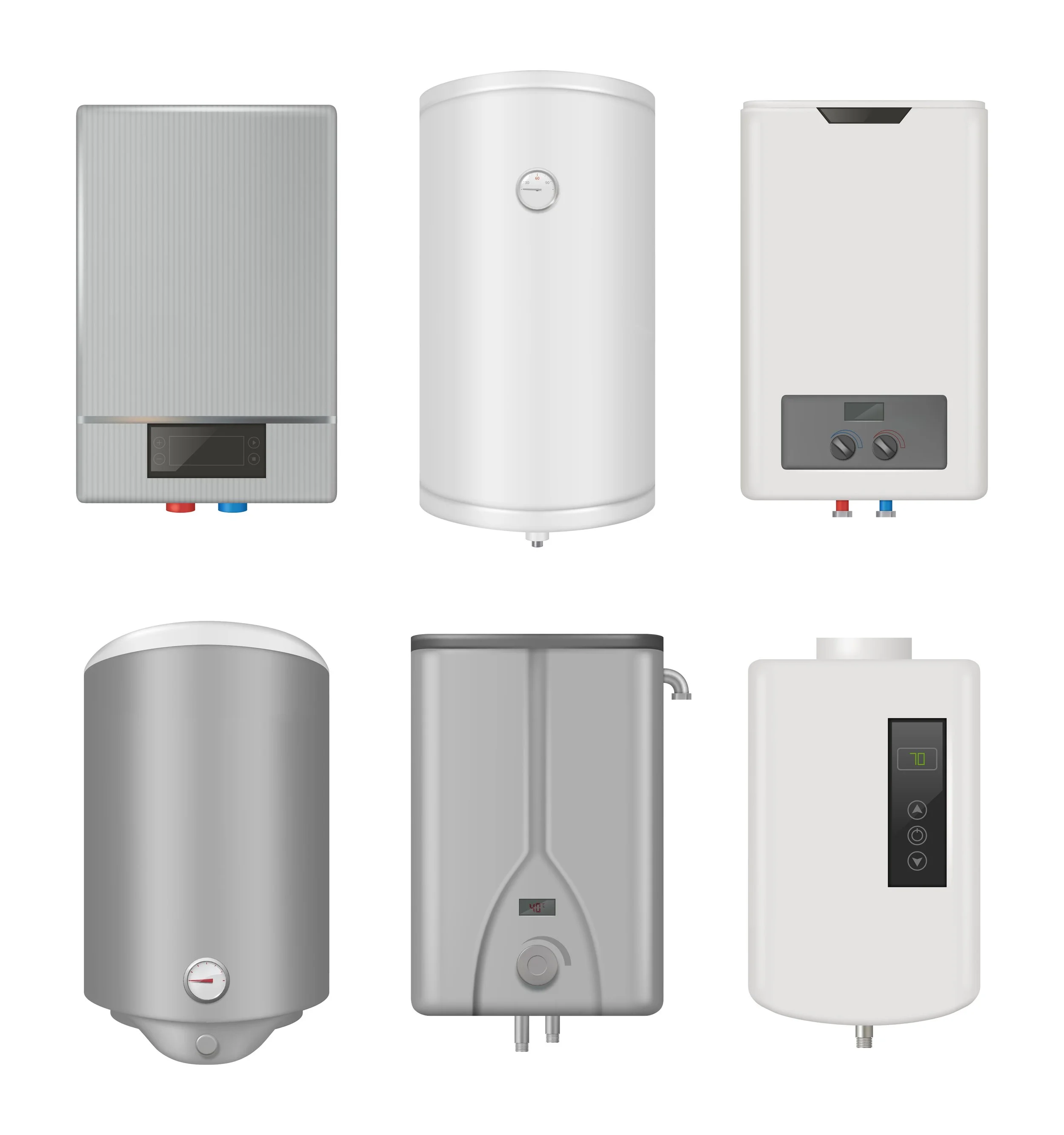Tank Storage VS. Tankless Water Heaters
With every new project I ask: What type of water heater would you like, tank storage or tankless? And over the last three years homeowners’ answers have been varied, but most people just seem confused. Here are the pros and cons to clear things up.
Tank Storage Water Heater
Water is heated in big quantities via a heating element in an insulated tank and stored at a constant temperature. In a single family residence, the tanks store 20 to 80 gallons. They are powered by gas, propane, fuel oil, or electricity.
Pros
Lower initial purchase cost.
Lower cost of installation because, unlike tankless, it doesn't need high capacity gas or electric supply.
Simpler operation means repairs and maintenance are cheaper.
Nowadays some heaters are 95% efficient. Very close to the tankless efficiency of 97%.
Cons
Heat is lost when the water is being stored (aka. standby heat loss). So to keep the tank at a constant temperature, water is constantly heated. Physics can be a jerk sometimes.
Gas & propane heaters suffer extra energy loss through the vents.
Once the hot water is gone, you have to wait for the whole tank to heat up again.
Life expectancy of only 10-15 years.
They’re very large.
If you’re going to buy one:
Look for a heavily insulated tank. The higher the R-value, the better.
Lowest price usually means least efficient over time.
Buy a tank that’s just right for your amount of use. The bigger the tank the great the standby heat loss. (< Remember that phrase? We learned it earlier.)
The government has some great information about this. (< Words that haven’t been uttered in quite some time.)
Tankless Water Heater
Water is heated instantaneously when needed. Most tankless water heaters provide hot water at a rate of 2 to 5 gallons per minute. They are powered by gas or electricity. Also, “tankless” is a misnomer since newer models have a tiny tank to avoid the initial heating lag.
Pros
As long as you don’t exceed the heater’s flow rate, the hot water never ends!
Lower operating and energy costs than a tanked heater.
Life expectancy of 20 years. Plus easily replaceable parts mean it could last much longer.
They’re MUCH smaller and can be installed outside.
They’re very quiet.
They emit significantly less CO2 than a tanked heater.
If you use about 40 gallons daily, tankless is around 30% more efficient. If you use about 80 gallons, it’s around 10% more efficient.
If you have a large household and need simultaneous multiple uses, you can install multiple water heaters without too much inefficiency.
Cons
Output is limited by the heater’s flow rate. So if you have one unit and you run the dishwasher and take a shower at the same time, you’ll be taking a very chilly shower. Answer: install more than one unit.
They have a higher initial cost and higher maintenance cost than a tanked heater.
With larger households (85+ gallons a day), the energy savings and longer life cycle may not be enough to recoup the higher initial cost.
They require a larger gas or electric hookup so retrofitting can be prohibitively expensive.
If you’re going to buy one:
Gas water heaters provide higher flow rates than those powered by electricity. They also use about 50% less energy than electric options.
If you’re buying gas, look for one with an intermittent ignition device (IID) since a standing pilot light wastes energy.
Look for a heater with a tiny tank or recirculation pump to avoid the “Cold Water Sandwich” effect.
The government has more great information about this. (GASP!)
Other Tips
Always insulate the full length of your hot water supply lines. That's the easiest, cheapest way to increase effiency.
You may want to consider heat pump water heaters and solar water heaters. They’re more expensive in the beginning but can save you big bucks over the long term.
Conclusion
If you're building a single family home and can afford the right number of tankless units, go for it! You stand to save money AND reduce your carbon footprint.
However, if you're building a larger building, will be running numerous fixtures at the same time, or can't afford the initial cost of tankless, a tank storage heater may be the right choice for you.
And as if that wasn’t enough. Check out this AMAZING infographic. Also by the the government! (<I’m starting to like them.)


